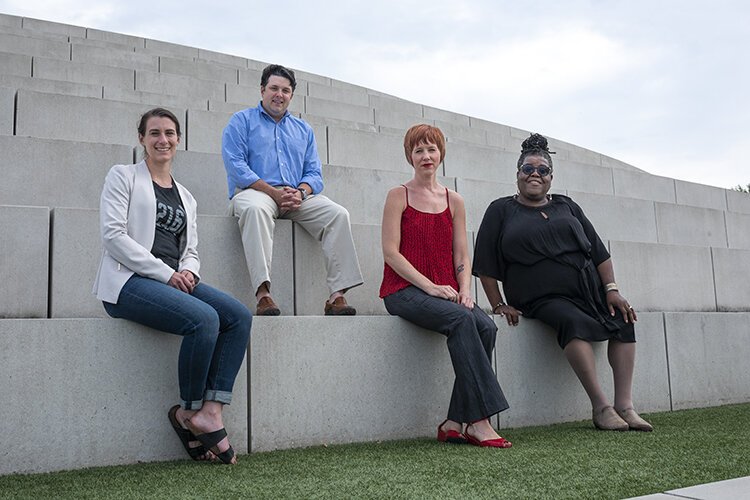Meet the #Fresh4, innovative thinkers making a difference
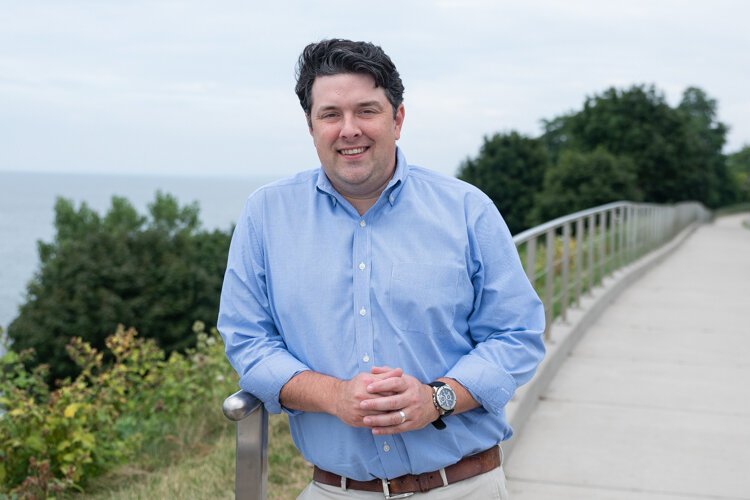 Tom Gill of Urban Community SchoolTom Gill, president of the Urban Community School
Tom Gill of Urban Community SchoolTom Gill, president of the Urban Community School
Tom Gill saw a gaping need in his community. Filling it meant stepping on some toes.
Gill, 36, has led the Urban Community School for two years. They’ve been acquiring land to expand the campus at 4909 Lorain Ave. on Cleveland’s Near West Side. Many of his 582 students are low income and lack access to health services.
“We started to explore the possibility of partnering with a health-care facility and leveraging some of the adjacent property that we have to start to meet these needs,” he says.
The result is an $8 million, 32,000-square-foot community clinic opening in spring 2020. Gill found a partner in the MetroHealth System to operate the clinic, which will log up to 90,000 patient visits a year.
“We also were open to expanding our role as an anchor in the community,” he says, “and thinking outside of the box about a school being much more than a 7:30 to 3:00 academic day.”
So in addition to offering primary, urgent and behavioral health care, the new facility will contain a Legal Aid Society of Cleveland office; a Cleveland Food Bank pharmacy; and a United Way 2-1-1 Help Center. “It’s really going to be a full suite of services,” he says.
It’s no stretch to predict this project will transform the neighborhood. “Unfortunately, it is still fairly unique to see collaboration on this scale,” Gill says. “Most of us want to do it on our own on an island, but we’re really trying to break out of that and see that one plus one can equal three.”
The Catholic Diocese of Cleveland disapproved. The clinic’s many services will include prescriptions for contraceptives. As a result, the school lost its accreditation last December by the Ohio Catholic School Accrediting Association.
“When you make decisions through the lens of your mission and really stay focused on doing what’s best for our kids and our families, you have your North Star, and you make decisions accordingly, you sleep just fine at night,” Gill says. “It was not a fun time for any of us. It was a rough time, but I think everyone who voted on that decision has the satisfaction of knowing that we are trying to do the absolute best that we can for the kids and families at the school and those around the school.”
Fortunately, the school, with 100 faculty and staff, is on its way to being accredited by the Independent Schools Association of the Central States, recently clearing its first hurdle in the lengthy process.
For Gill, who grew up in Bay Village and now lives in Ohio City with his wife, Erika McLaughlin, and their two young sons, it all ties in with his personal philosophy: “Be excellent at your core work and be humble enough to partner with other people that can add value to your mission. I’m a big believer in a cross-sector approach. Education and nonprofits and health care and housing, food scarcity, those different sectors can’t operate in silos and have the impact any of us want. We have to work across sectors to try to really improve the community.”
-- Chris Ball
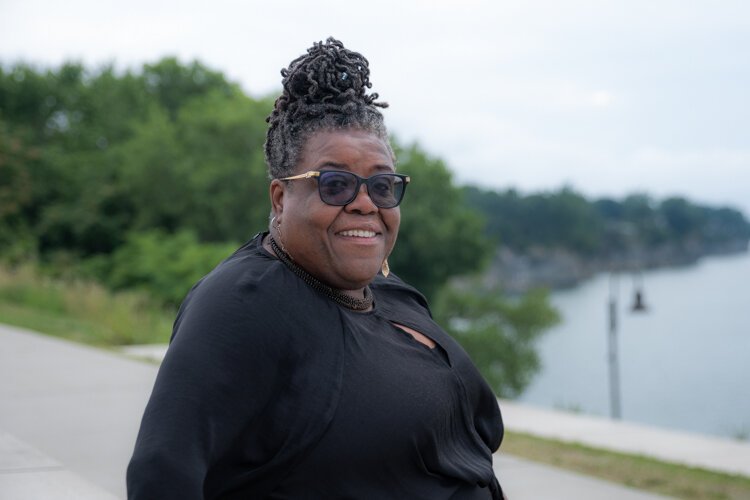 Jacqueline Gillon of Black Environmental LeadersJacqueline Gillon, community engagement specialist for the Western Reserve Land Conservancy
Jacqueline Gillon of Black Environmental LeadersJacqueline Gillon, community engagement specialist for the Western Reserve Land Conservancy
Jacqueline Gillon remembers watching television during elementary school and seeing civil rights demonstrators attacked by dogs and police. “It impacted me greatly, so I made a commitment then as a child that I always wanted to work in support of my people.”
Growing up in Cleveland’s Glenville neighborhood and then East Cleveland, she attended city meetings with her parents, who were heavily involved. “They were my leadership model.”
Gillon graduated from Hiram College in 1974 with a communications degree. “When I came home, I noticed how our community was changing drastically.” So she jumped in.
She was elected three times to East Cleveland City Council. Then she spent 19 years in leadership development.
“I’ve always been sensitive to environmental issues,” says the avid gardener. “Even as a legislator, I had a relationship with the Sierra Club and was fascinated with the things that were going on and the issues they were taking on.” She often sponsored resolutions in support of environmental issues.
Now 63, she’s been with the nonprofit Western Reserve Land Conservancy in Moreland Hills for five years. She also serves as co-chairwoman of Black Environmental Leaders, which represents 20 organizations. She’s focused on leadership issues.
“I want to make sure that people recognize that a leader is only as important as the people who are working with them, and we endeavor to be a collective and not a hierarchy. I think that’s one of the problems with Cleveland now, that we’re so married to a rigid form of leadership that we’re afraid of shared power, that we take our leadership models from a traditional place where one person holds all the power, and if you’re lucky, while you’re sitting around the throne, you’ll get a taste of it. It’s ridiculous, and it has not served us well as a community.
“And for African-Americans, it’s particularly important. The civil rights movement was not successful because [Martin Luther] King was the leader. There were many leaders with him. So yes, ideally you always have that one person who convenes everyone as a focus, but we have got to come together and work collectively in Cleveland.”
How?
“When you do meaningful work together, when you share your power, when you share information, when you teach collaboration, because we don’t know how to naturally do that, we do not teach civics anymore. We have to teach. Because people really don’t understand how government operates and that there are entryways into decision-making places and that we have to create tables where different types of people can sit.
“Tables nowadays are very exclusive, very white, and if not white, very middle class, and always leave somebody out. So we have to be quite intentional in inviting everybody to the table and recognizing the assets in the community and not building everything on deficiency and what’s wrong with Cleveland or what’s wrong with people. The grassroots community is very rich in leadership, but they don’t have the keys to power.”
-- Chris Ball
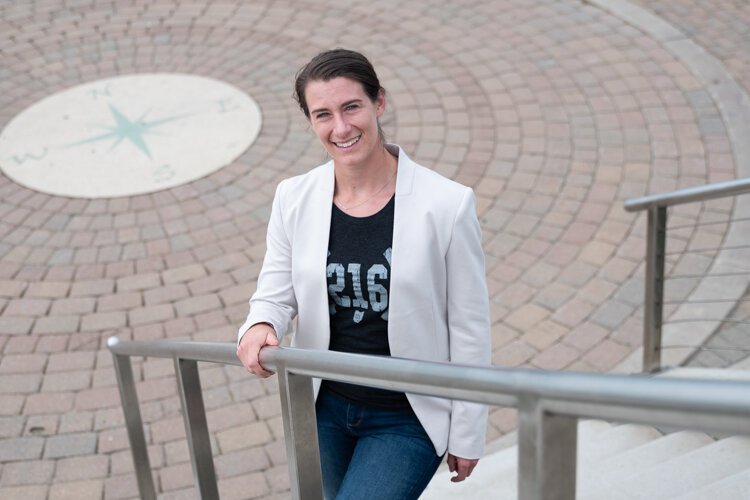 Stephanie Buda - Kids of 216Stephanie Buda, executive director, The Kids of 216
Stephanie Buda - Kids of 216Stephanie Buda, executive director, The Kids of 216
Stephanie Buda was working on a master’s degree in biology at Cleveland State University when she had an epiphany.
“I just felt, based on reading and research I was doing, that I should be working with inner city kids,” says Buda, 26, who grew up in Richmond Heights and Highland Heights.
We are such a data-driven society that less fortunate individuals often are overlooked, she says. “No one really knows their stories.”
She switched gears and began working on a master’s in business administration at John Carroll University (even while finishing her biology degree). Her MBA project evolved into The Kids of 216, a vocational summer school that teaches at-risk teens trade skills, including safety and tool orientation, as well as life skills, such as learning how to take care of overdue traffic tickets.
For the last three summers, 30 students a year have built gazebos, greenhouses and playgrounds in their Cleveland communities. “We want kids to see the transformation in their own neighborhoods,” Buda says.
Next year, the nonprofit plans to add spring and fall programs and double its staff from three to six. They share office space at the Women’s Business Center at 7000 Euclid Ave., Cleveland.
What does being named a #Fresh4 Innovator after only three years of operation mean to her? “It definitely reminds us we’re on the right track, but at the end of the day, it’s the kids we’re thinking of,” she says.
-- Chris Ball
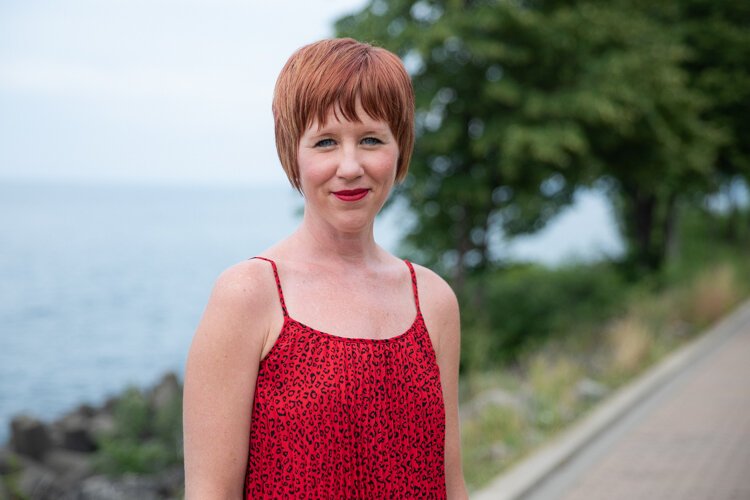 Shelly Gracon, founder and CEO, Glo Cleveland's EVOLV
Shelly Gracon, founder and CEO, Glo Cleveland's EVOLV
In September 2016, Shelly Gracon launched Glo Cleveland in the ArtCraft Building with a vision of creating a collaborative studio for artists in all media and a place to collaborate and build on each other’s energy.
The vision is still evolving, as Glo Cleveland moved within six months of opening into a 5,000-square-foot space at 2460 Lakeside Ave. in April 2017. The move opened up a world of possibilities—Gracon has spent the past two years incubating and executing her larger vision for an innovative and creative event space, from co-working areas and offices to an organization that focuses on female entrepreneurs.
On Aug. 15, Gracon hosted a launch party for the newest facet of Glo Cleveland—EVOLV, a 100 percent female-owned event and coworking space for female entrepreneurs.
“We want to be that venue that’s super unique,” says Gracon. “There are so many spaces for men, and so many spaces for everyone. I want a space for women to grow, network, and cultivate and build their businesses.”
Gracon says it was important to target women as she launches EVOLV. “I really feel, especially being a female entrepreneur, it can feel really isolating,” she says of the entrepreneurial experience. “We’re trying to build this ecosystem where entrepreneurs can offer their services to clients for pop-up events—to provide all of that in-house.”
The rebranding and renovation project that will make EVOLV a reality is underway. Gracon recently launched a Honeycomb Credit campaign to raise investment funds for the new look and has nearly reached her goal.
The entire space is open concept, says Gracon, with a kitchen dressing room, art gallery, office, and pop-up shop space.
The co-working space has two private offices in addition to shared workspace. Co-working members also have access to the event space for workshops, shows, events and classes.
Gracon plans to install more durable, brighter flooring in the warehouse as well as update the kitchen.
The 3,500 square feet reserved for event space is both open to whatever the creator wants to do and also offers amenities like a large infinity wall— a curved white surface that blends the floors and wall together so that anything put in front of it is highlighted. “Basically, it’s a big, giant white box,” Gracon says. “We’re building out programming and workshops around how to use one. It can be a backdrop for fashion shows, films, there’s so much versatility to it.”
But then Gracon is using color to make the place pop. She says she’ll rely on the entrepreneurs to contribute to the final touches. “Just with art and color, we’re trying to cap that [rebranding] off and make it as interesting as we can,” she says. “And make it the best in the city.”
-- Karin Connelly RIce


